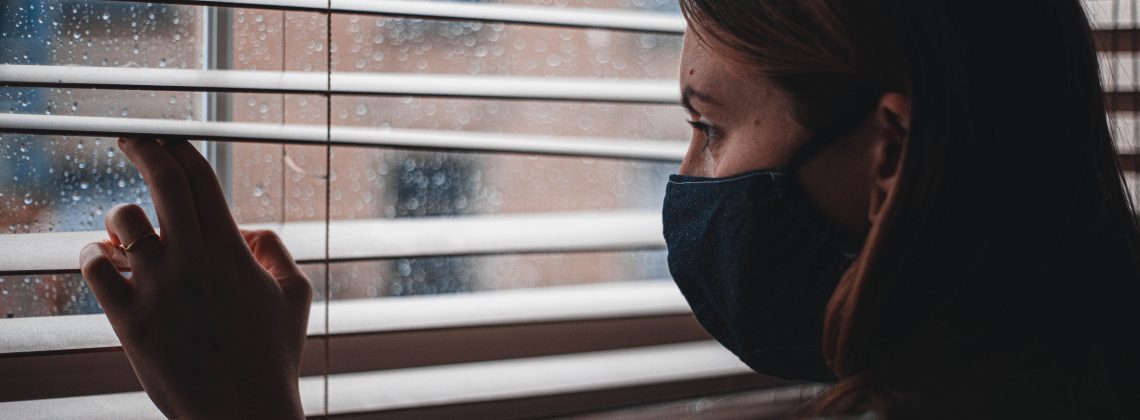

Rejection letters, dried-up funding, and social isolation add up to more than “First World problems”
I am tired. I do not get enough sleep (six hours on a good night), but late nights are not the only explanation for the dark bags growing under my eyes. It is the constant worrying and uncertainty about the future that drains the pep from my step.
I graduated college in May 2020.
When the pandemic hit, I had senioritis and thus welcomed a two-week break from classes. Two months later—my “graduation day”—I was sitting in a friend’s living room watching a live-streamed “ceremony.” We celebrated our accomplishments and grieved the end of our senior year. My family was 485 miles away, in quarantine.
But I knew my losses paled in comparison to what people suffered during the pandemic. Mine were so-called “First World problems.” So I buried them under other COVID-19-related woes and tried to stop feeling sorry myself.
That is until the questions began. People always ask them with a sense of innocent curiosity: “So you graduated with a degree in [insert major here]. Good for you! What are you going to do with that?”
Instant panic. Do I rattle off a list of all the possible jobs one could do with a double major in history and psychology? Should I spin an elaborate, fraudulent tale about my five- or ten-year plan? Maybe I could use a smile or some big industry words to distract my inquisitor, giving me an opening to change the subject?
Anything to avoid the truth: I have no idea what I am doing, no plan for the future, and no progress to show.
I have spent the last year binging Netflix shows and trying out new air-fryer recipes in an effort to avoid these well-meaning but anxiety-producing questions.
What a time to enter “the real world”!
The questions about the future, and the social pressure to forge a path ending in middle-class comfort, can be unbearable. Recently a good friend asked me if I had started investing for retirement—she says she is on track to be a millionaire by age sixty-five. I reluctantly admitted that I don’t even have a stable income. Friends who majored in marketing, nursing, and business are already talking about career advancement, 401ks, getting married, and buying a house in the suburbs. I am not interested in any of these things right now, but I still feel like an outsider looking in when we get together for coffee.
It is not easy to find a vocation when internships are limited, job fairs are on hiatus, and graduate school funding has dried-up. Endless nights in the college library seemed worth it when I thought about the possibility of going to graduate school on a full ride. Then I learned that every school that accepted me had cut funding for incoming students. I guess I’ll take another “year off.”
It is also hard to find my way in a post-graduation world without the human connections one gets from hanging out with friends, traveling, or going to church. It has been so long since I attended a friend’s birthday party, worshipped in a brick-and-mortar church, or even hugged my grandparents. How much longer can I self-isolate indoors with nothing but my anxiety about the future to keep me company?
I could keep chronicling the trials and uncertainties associated with living out the formative years of one’s life in the midst of a pandemic, but that is not why I am writing.
I am writing to normalize the feelings of sadness I have suppressed because I knew others had it far worse than I do.
I am writing to normalize the fears about the future and the uncertainty that comes with it.
I am writing to normalize the frustration I feel from people in my life who cannot understand these fears.
I am writing to normalize the unhealthy, self-directed anger I feel for not being able to just “figure it all out.”
I am seeking experiences and learning opportunities that might point me in the right direction. But it is still normal to feel these things.
I don’t have a five-year plan. I don’t even have a one-month plan. I don’t know what I want to do, or where I want to end up, or how I am going to get there. But I am also starting to embrace the uncertainty of the post-pandemic graduate life. This means giving myself grace when doors close, rejection letters flood my inbox, and failures pile up. It’s okay to grieve the loss of the little things, and it’s comforting to know that I am not alone in my anxiety.
So the next time your great aunt’s second cousin twice removed asks you about your future plans, tell her that you have no idea. And get a good laugh when you see the stunned look on her face.
Allyson Fea writes from Grand Rapids, Michigan.
Allyson Fea writes from Grand Rapids, Michigan.